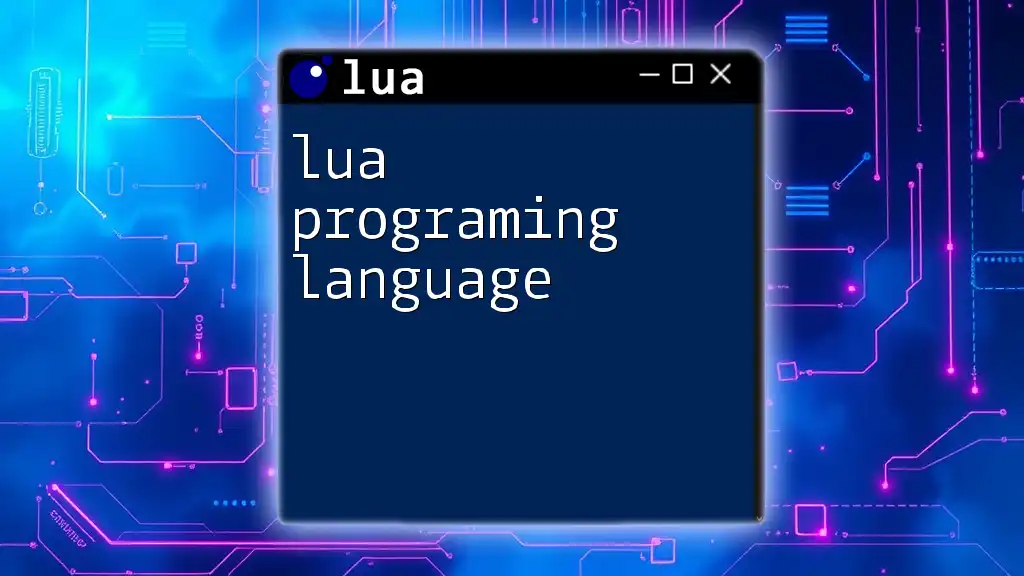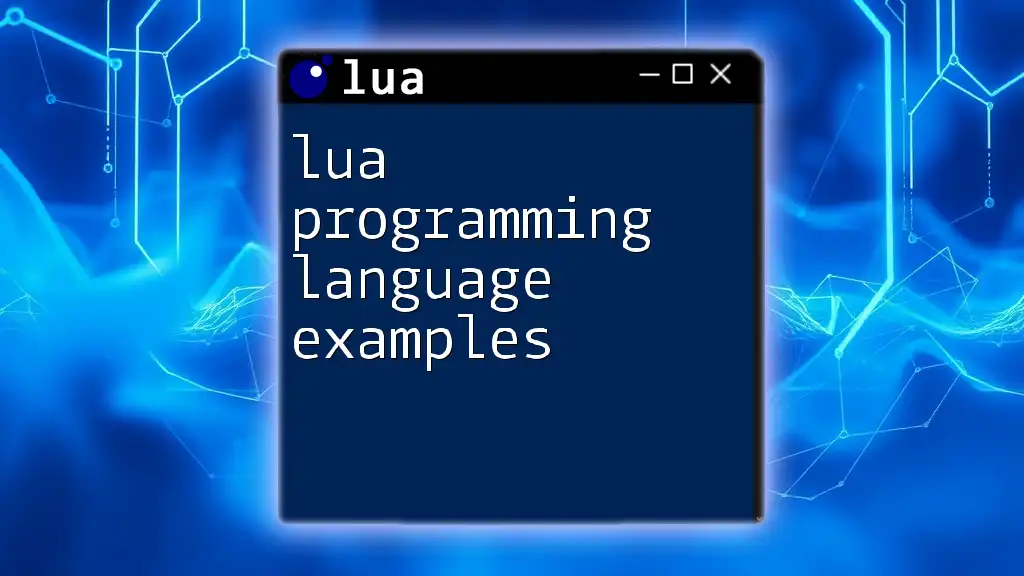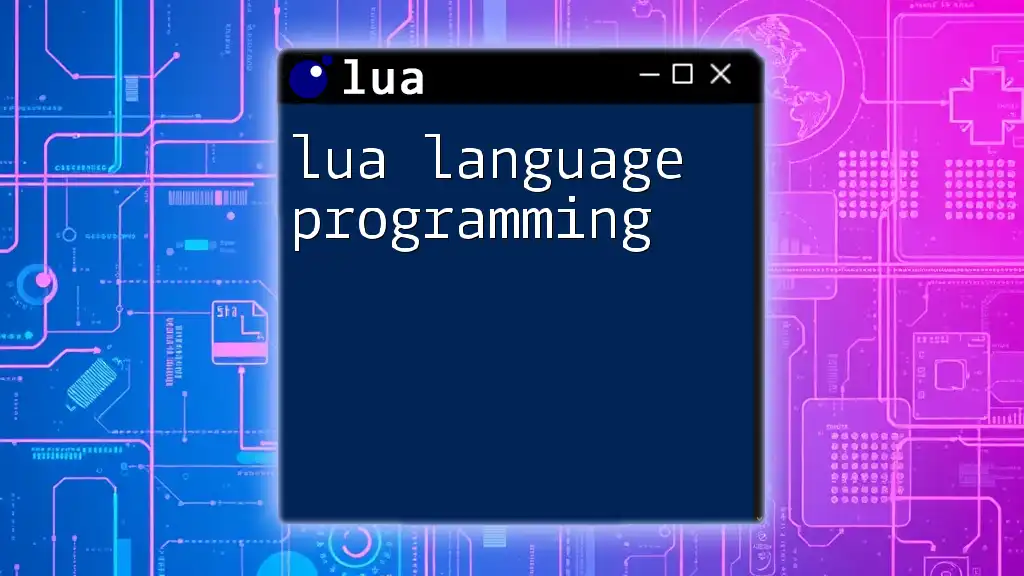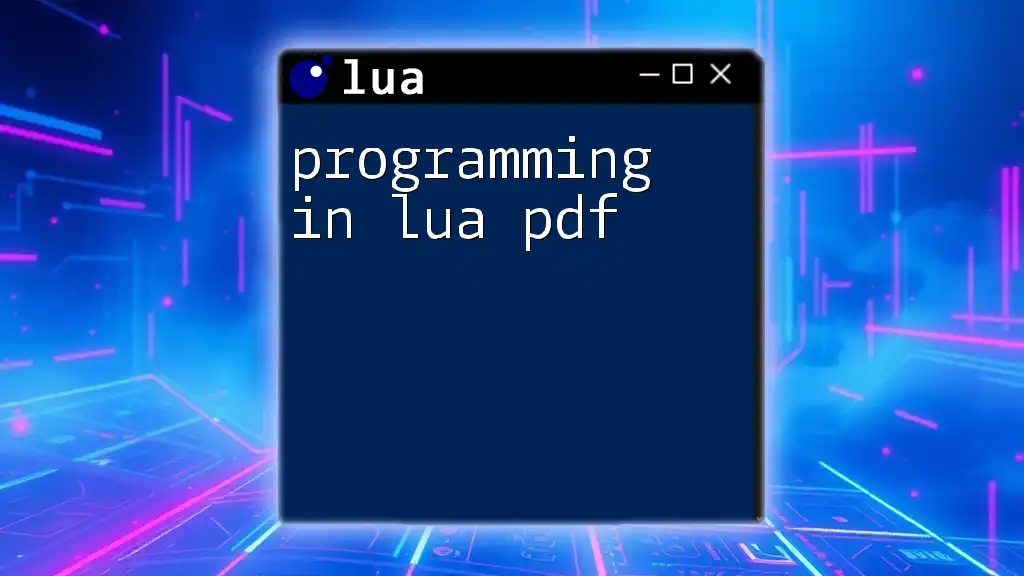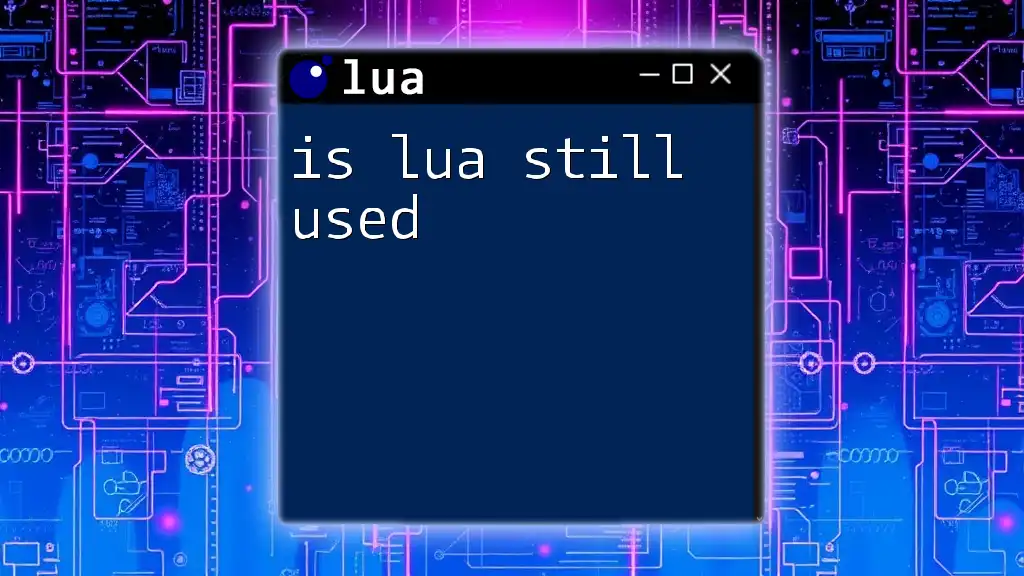Lua programming is primarily used for embedding scripting capabilities in applications, game development, and automation due to its lightweight nature and easy integration with other languages.
Here's a simple Lua script example that prints "Hello, World!" to the console:
print("Hello, World!")
What is Lua Programming?
Definition of Lua
Lua is a lightweight, high-level programming language designed primarily for embedded use. The core philosophy of Lua emphasizes simplicity and flexibility, making it accessible for beginners and powerful enough for advanced users. Its syntax is straightforward, which contributes to its rapid learning curve.
History and Development
Lua was created in 1993 at the Pontifical Catholic University of Rio de Janeiro, Brazil, by a team consisting of Roberto Ierusalimschy, Luiz Henrique de Figueiredo, and Waldemar Celes. Originally designed to extend applications, Lua has grown and evolved over the years, becoming a popular choice for a variety of programming needs, especially in gaming and embedded systems.
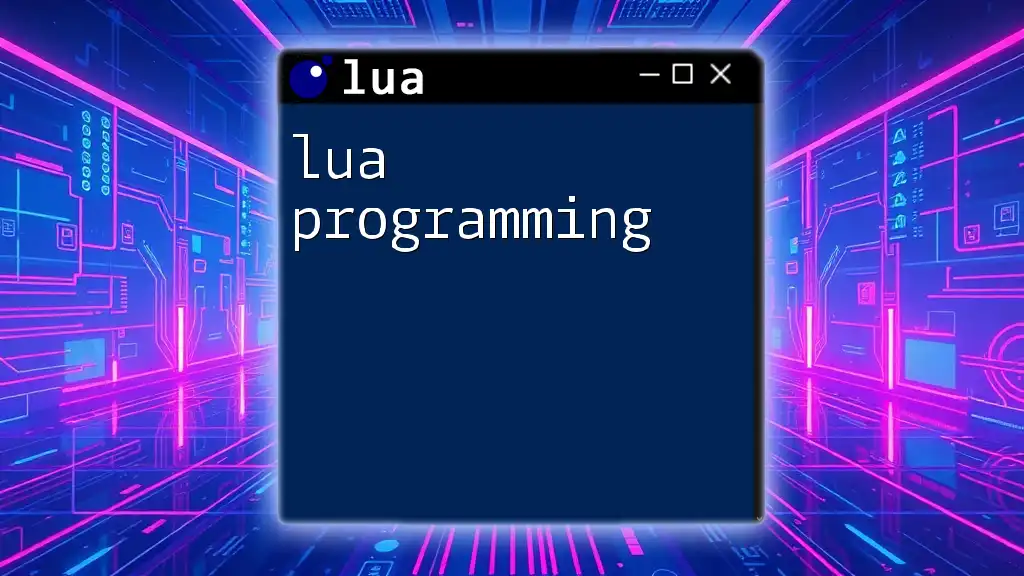
Core Features of Lua
Simplicity and Efficiency
Lua's design focuses on simplicity and efficiency, allowing developers to write programs quickly. The language's minimalistic approach means it has a small set of keywords and constructs but can be powerful when combined with its features. Compared to languages like C++ or Python, Lua can be easier to grasp, especially for new programmers.
Extensibility
Lua shines in its extensibility, which allows it to be embedded within larger applications. This makes it a popular choice among developers looking to add scripting capabilities to their software. The language can be embedded into C and C++ applications, making it highly versatile for different programming environments.
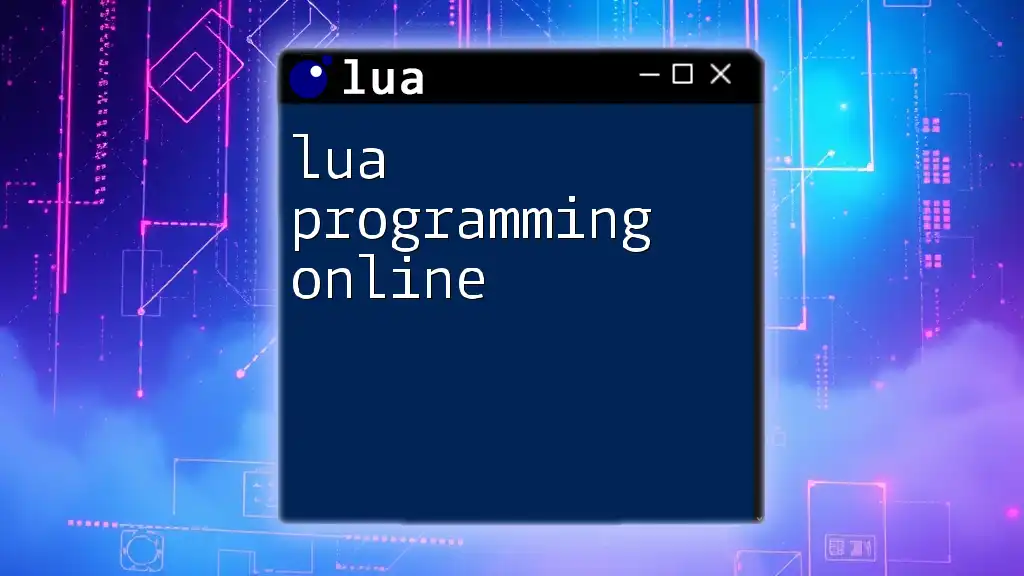
Use Cases of Lua Programming
Game Development
Lua is widely recognized for its role in game development. Many popular game engines, such as Unity and Corona SDK, integrate Lua for scripting game logic. This is largely due to Lua's high performance and the ease with which game developers can use it to enhance gameplay.
Example of Lua in Action
Here is a simple Lua script for character movement in a game:
function moveCharacter(character, x, y)
character.position.x = character.position.x + x
character.position.y = character.position.y + y
end
This code snippet demonstrates how Lua can handle real-time character movements by adjusting the character's position based on input.
Web Development
In the sphere of web development, Lua is utilized through frameworks like Lapis and Sailor, enabling developers to build efficient web applications. The lightweight nature of Lua helps to create fast and responsive web servers.
Example of a Web Server Using Lua
Here’s an example of a basic HTTP server implementation using Lua:
local http = require("http.server")
local server = http.new()
server:route("/hello", function()
return "Hello, World!"
end)
server:listen(8080)
This simple server responds to a request at the `/hello` endpoint, showcasing how easy it is to set up a web application with Lua.
Embedded Systems
Lua is also extensively used in embedded systems, particularly in the Internet of Things (IoT). Its performance efficiency and low memory usage make it a preferred choice for programming microcontrollers and other resource-constrained environments.
Examples of Embedded Applications
The use of Lua in device firmware enables companies to develop interactive interfaces on embedded devices without needing bulkier programming languages.
Scripting and Automation
Lua can significantly enhance productivity through scripting and automation. Developers use Lua scripts to automate repetitive tasks, making it a valuable tool in various technical fields.
Example of a Lua Automation Script
Here’s an example of an automated file management script in Lua:
os.execute("mv /path/to/source /path/to/destination")
This snippet demonstrates how Lua can call system commands to manage files automatically, streamlining workflows.
Data Processing
Lua has libraries dedicated to data handling and analysis, making it capable of processing large datasets effectively. Libraries such as LuaSQL facilitate database interactions and data retrieval.
Example of Data Connection
Here’s a straightforward example of connecting to a database using Lua:
local luasql = require("luasql.mysql")
local env = luasql.mysql()
local conn = env:connect('dbname', 'user', 'password')
This snippet shows how Lua can integrate with databases to execute queries, demonstrating its utility in data processing tasks.
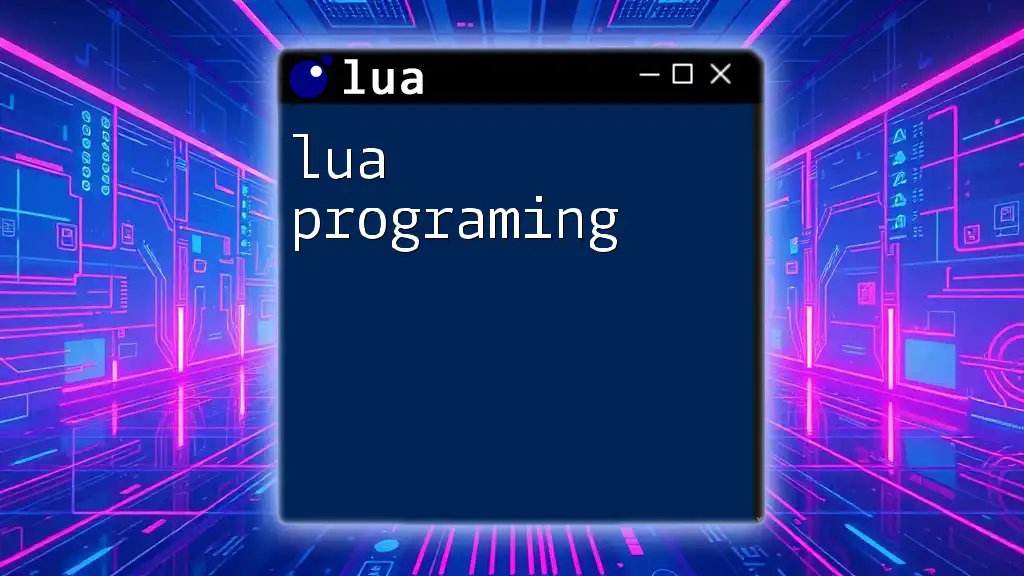
Advantages of Using Lua
Using Lua comes with numerous benefits. The performance advantages of Lua make it one of the fastest scripting languages available. Its ease of integration into applications facilitates rapid development cycles.
Moreover, Lua boasts a supportive community that continually contributes to its development. There are extensive documentation and resources available, making it easier for newcomers to learn and explore this powerful language thoroughly.
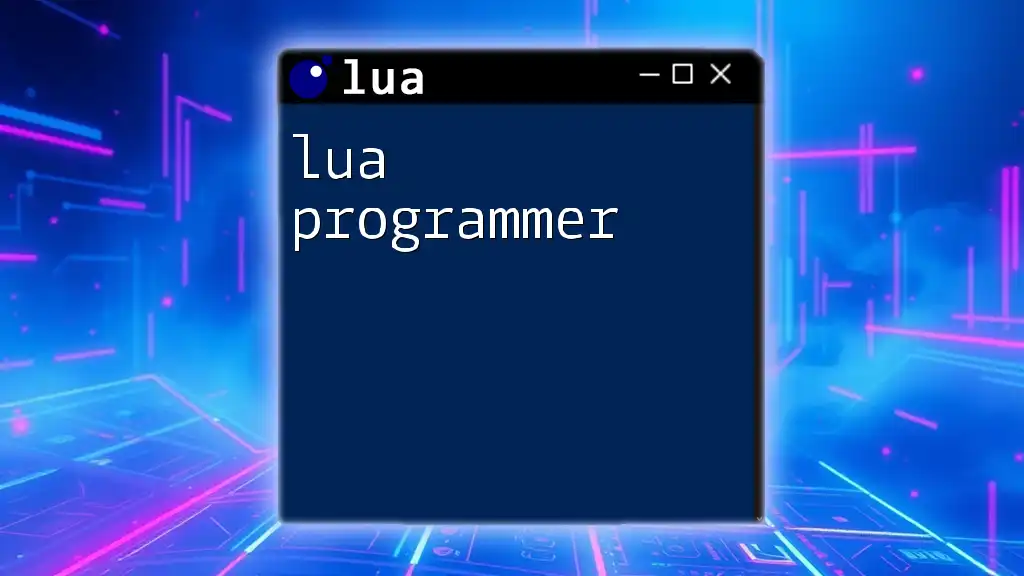
Conclusion
In summary, Lua programming is incredibly versatile and is used effectively across various domains, from game development to web applications and embedded systems. Its simplicity, efficiency, and rich ecosystem make it an attractive option for developers looking to achieve powerful results with minimal complexity. If you're interested in pursuing programming skills, starting with Lua presents a great opportunity to dive into the world of coding quickly and effectively.
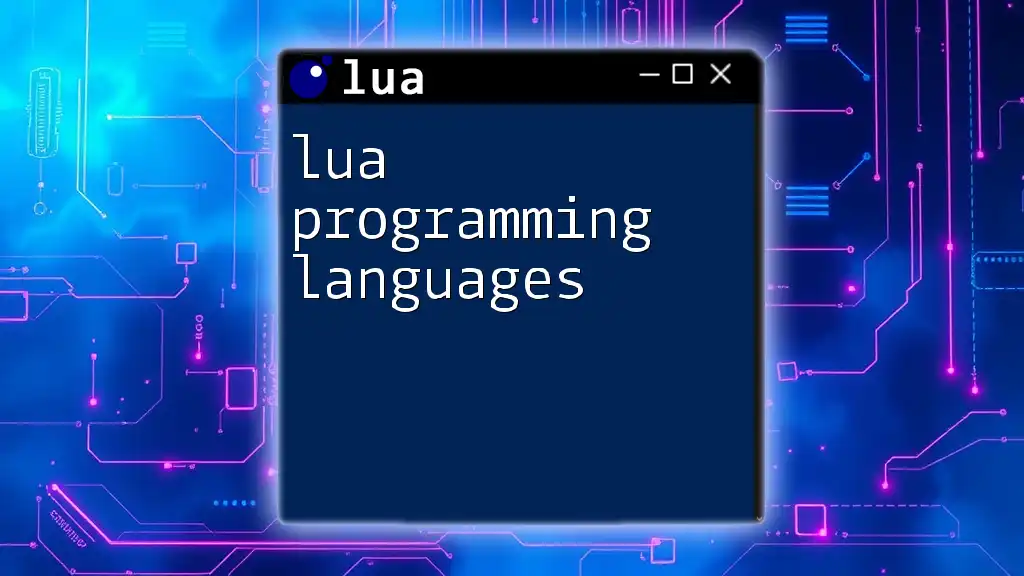
Additional Resources
As you explore Lua further, consider visiting learning platforms that offer courses and tutorials to delve deeper into the language's capabilities. Some excellent resources include documentation on the official Lua website, online courses on platforms like Coursera, and community forums dedicated to Lua programming.
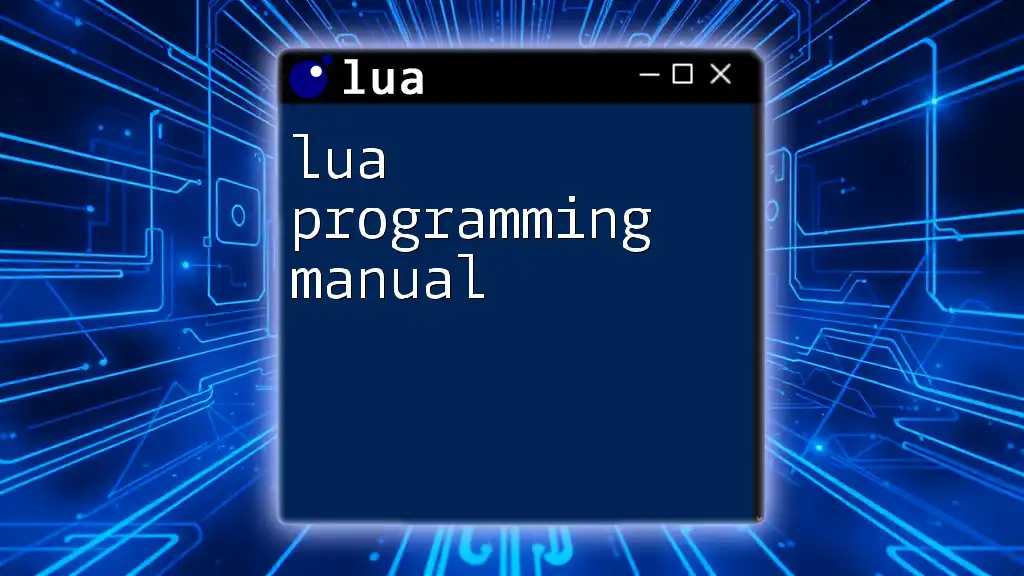
Frequently Asked Questions (FAQ)
For those curious about Lua and its applications, common questions often arise. Feel free to explore these inquiries further as you consider how to effectively utilize Lua in your projects.








